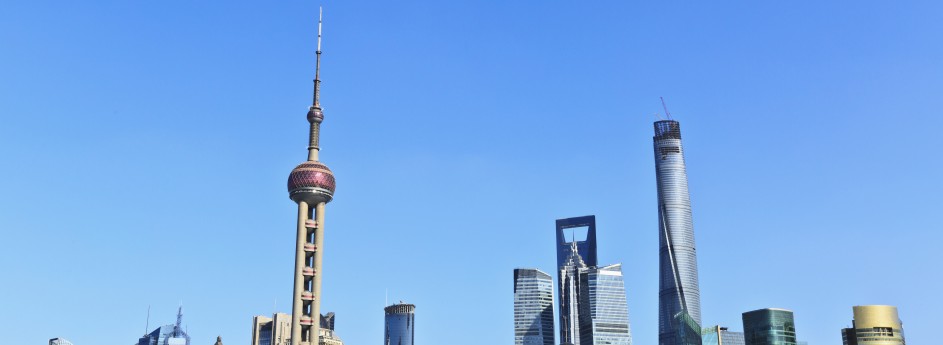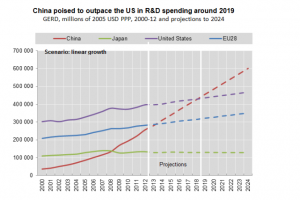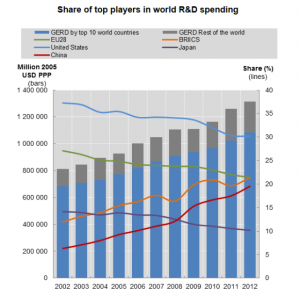Vast Majority of Australians Don’t Want to Take Sides in East China Sea Dispute: Poll
This is interesting. The results perhaps reflect Australia’s position as a major beneficiary of China trade but at the same time its security alliance with the US. So, the Auzzies are prone to sit on the fence which is rational. On the other hand, a fair number of them don’t even know what the dispute is about.
The big question is whether Americans would support their navy’s aid to the Japanese should there be any big flare-ups over the Diaoyus. Although the US and Japan are locked in a security treaty and the Obama Administration has been vocal about US obligations, American public sentiment is another matter. Americans are becoming less and less inclined to support going to war over Taiwan let alone the Diaoyus.
———-
71 per cent of those surveyed in a poll commissioned by the Australia-China Relations Institute, headed by former Foreign Minister Bob Carr, think Australia should remain neutral.
Only 15 per cent were of the view that Australia should support Japan and the US.
The cluster of islands have been home to an ongoing territorial dispute between Japan and China.
Should a US President phone the Australian Prime Minister to ask for help in the future, 68 per cent of respondents in the poll believed he should turn America down — 14 per cent said he should say yes.
But only 40 per cent of the 1000 people polled by UMR Research were aware of the dispute at all.
Ex-Foreign Minister Bob Carr, Director of the Institute, said the East China Sea is the most volatile of any disputes that could see Australia drawn into armed conflict.
“The poll confirms Australians overwhelmingly want their country to stay neutral,” he said.
“As far as the public is concerned we are not obliged under ANZUS to make any commitment.
“We know that Australians overwhelmingly support the ANZUS treaty but this poll confirms they do not want it invoked in conflict between China and Japan over the islands in the East China Sea.”
– news.com.au
Chen Shui-bian Weasels Out of Serving More Time, For Now
Medical parole, my foot!
He, his family, and his diehard supporters in the DPP have been trying to him get out on various pretexts since he was incarcerated for graft. Sleep apnea is a non-life-threatening sleeping disorder that can be readily treated. What does nerve degeneration involve and is it “life-threatening” too?
Despite their denials, his parole is definitely politically motivated! No doubt he and his supporters will try to use the opportunity to create sympathy for a full pardon. Watch how the soap opera plays out!
———-
Former Taiwanese president Chen Shui-bian was released from prison on Monday on a one-month parole for medical treatment, amid pressure from pro-independence opposition leaders newly emboldened by victory in local elections six weeks ago.
The temporary release comes less than half way through Chen’s 17-year jail term for corruption and while the parole does not explicitly restrict him from political activities, authorities said he was to use it mainly for recuperation.
Chen’s illness remains undiagnosed, but his supporters say it involves nerve degeneration and sleep apnea, and could be life threatening.
“His condition will be reviewed monthly and may be extended if his medical status does not improve,” Ministry of Justice official Chen Ming Tang said while announcing the parole.
“The terms of his release do not limit his activities but it is to be used predominantly for medical recuperation.”
He denied that the parole was politically motivated and said that there have been no discussions of a full pardon.
Chen’s release comes after the opposition Democratic Progressive Party (DPP) ramped up a campaign for his parole, including a hunger strike by the former vice-president, following a major victory in mayoral and regional elections in late November.
– Reuters
China to Triple Patents by 2020 as R & D Spending Overtakes the US and EU
While it is good for China to set targets, it is more important to 1) scrutinize the quality of patents registered in China; 2) steadily raise the proportion of Chinese patents registered internationally; and 3) translate those patents into usable technologies, an area in which China lags badly behind the US. China’s IP protection has improved significantly over the past few years and will continue to do so into the next decade so one can only hope that with quantity comes quality and utility.
Most important is how much countries are devoting to R & D. According to a recent OECD study, China surpassed the EU28 in S & T spending in 2013 and is expected to leap-frog over the US by 2018. The two graphs below illustrate the dramatic trend. But, as with patent numbers, China needs to convert that spending into tangible results to become a truly great innovation power.
Meanwhile, a Washington Post article laments the decline of US innovation: http://www.washingtonpost.com/opinions/fareed-zakaria-the-need-to-renew-american-innovation/2015/01/01/b0f0d864-913b-11e4-a900-9960214d4cd7_story.html
———-
China is aiming to triple the number of patents it files by 2020 as Beijing looks to boost the country’s high-tech economy in areas from agriculture to pharmaceuticals, according to a notice from the central government on Sunday.
China is targeting 14 invention patents per 10,000 habitants by 2020 compared to four in 2013. It published 629,612 patents in 2013, over 200,000 more than the United States, according to a Thomson Reuters study in December.
Beijing wants to become a bigger player in high technology industries as the country grapples with slower growth and rising costs for its manufacturing base. This is likely to raise a challenge to global players operating in China and abroad who have typically dominated in more innovative sectors.
“Intellectual property (IP) is increasingly becoming a vital component of China’s strategic resources and competitive ability,” the statement posted on the Central People’s Government website said.
It added that by 2020 China would have boosted its legal environment for IP protection and management, often an area of contention for foreign firms who say that IP law in China sometimes favors local players.
Beijing is also looking to reduce the length of the review process for patent and trademark applications. Patent reviews will decline to 20.2 months in 2020 from 22.3 months in 2013, while trademark reviews will fall to 9 months from 10 months.
– Reuters
Source: OECD Science, Technology and Industry Outlook 2014.
The press release can be seen at: http://www.oecd.org/newsroom/china-headed-to-overtake-eu-us-in-science-technology-spending.htm






